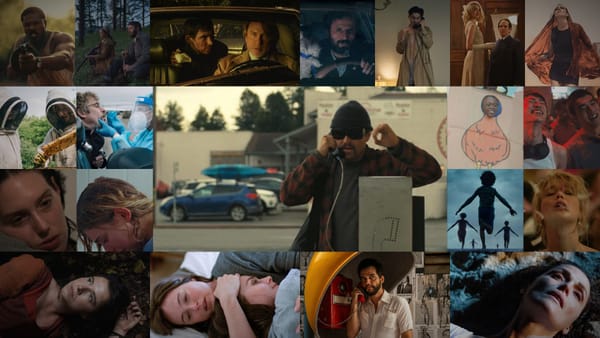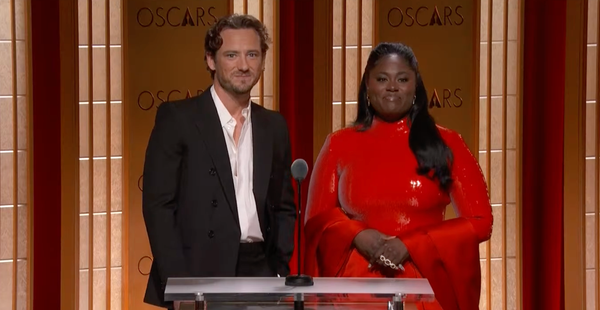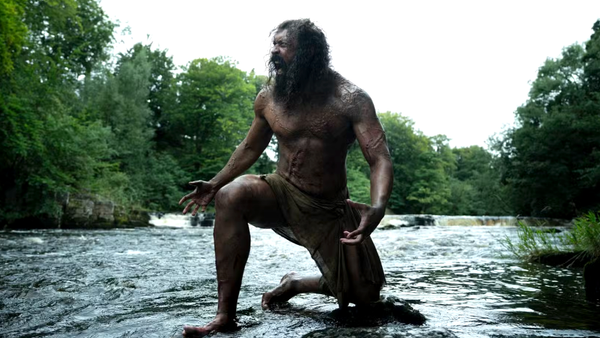'Air' Pulls Back The Curtain On Sports Mythmaking With Flair
Plus: Some quick thoughts on 'The Super Mario Bros. Movie.'
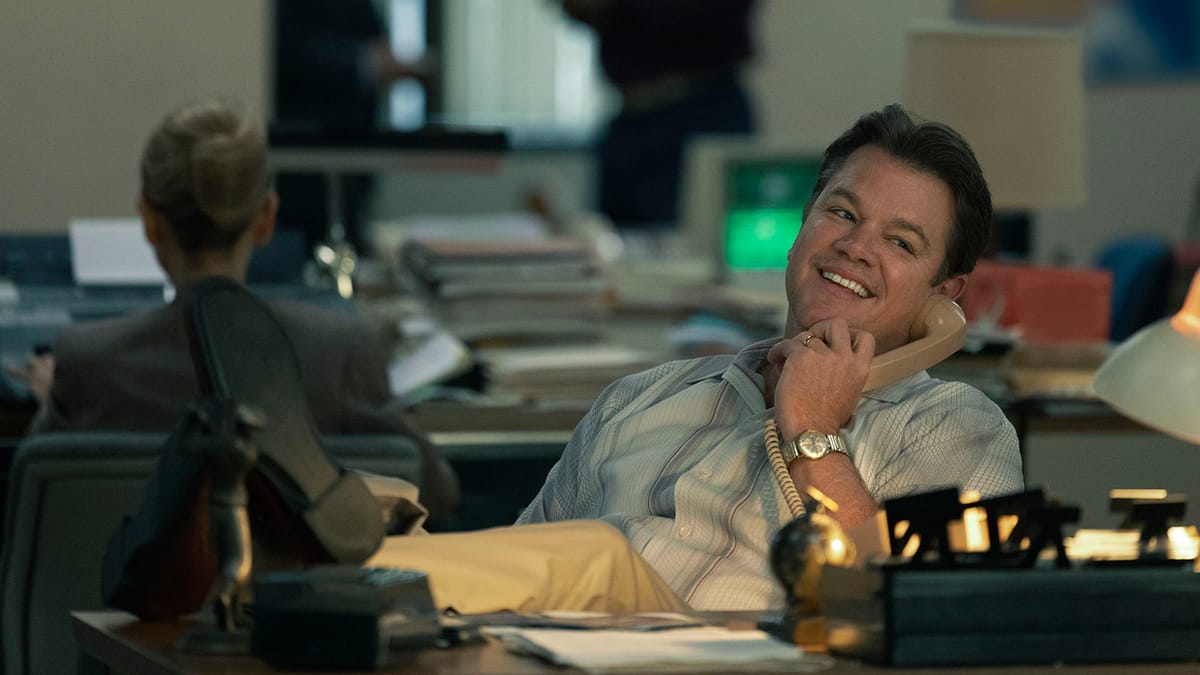
Today I’m pleased to share with you Chrishaun Baker’s review of Air, which is out in theaters now. Then, some of my quick thoughts on The Super Mario Bros. Movie before I implore you to watch all the videos I’ve been cranking out this week. Enjoy.
It’s nearly impossible to imagine a world before Michael Jordan was Michael Jordan. That sentence might seem like a headache, but it’s true. There’s the Michael Jordan who was born in Brooklyn on February 17th, 1963, to Deloris and James R. Jordan Sr. The one who moved to Wilmington, North Carolina at five years old, where he dominated junior varsity in high school after being denied a spot on the varsity team for being too short. That summer, he grew four inches, and dominated at that too. Then of course, there’s the Jordan who left UNC Chapel Hill a year early to enter the ‘84 NBA draft.
After that, he became Michael Jordan. Arguably the greatest competitive athlete to ever live. The one who won 3 NBA championships, back-to-back, twice. The one who summoned inhuman resiliency to return to the game and play his heart out after he’d lost it due to the murder of his father. The one who has ceased to be a man, and has instead become a legend: a symbol of the greatness that can be achieved from nothing more than hard work and astounding dedication. One of the most recognizable faces in sports entertainment, ever. The number 23.
Ben Affleck’s newest film, Air, isn’t entirely about that guy. Instead, it strips back the mythic scroll on which Jordan’s legend is etched, and centers its spotlight on the handful of Nike employees who took a wild gamble in 1984 and became icons of business forever. Plenty of movies have chosen to emphasize the legacies of the people responsible for the biggest corporations on Earth, and more often than not, the thing that sinks them is a lack of appreciation for the smaller moving pieces that put those companies where they are today. So leave it to Affleck, an actor-turned-director with an intense love of basketball himself, to meet the story exactly where it lies and find the intimacy in such a larger-than-life tale of success.
There’s not a lot of kinetic visual style on display in Air, but that’s not a failing – Affleck’s workmanlike qualities as a director support the humble (relatively speaking, they were still pretty successful at the time) status of Nike when the film takes place. The film’s cinematography emphasizes the down-to-Earth naturalism of Beaverton, Oregon, as it’s here at Nike’s original headquarters that most of the film takes place. The lack of over-the-top stylistic flair allows the movie’s biggest star to shine, which is its whip-smart script.
While screenwriter Alex Convery receives sole credit, by his own admission, the script is a patchwork of bits and pieces taken from other places. Much of it was pulled from the ESPN documentaries Sole Man and The Last Dance, some of it from Damon and Affleck. More still was the result of crucial on-set improvisation from the cast. It’s a difficult feat to find the heart in a film that, on its surface, is nothing more than a bunch of business meetings in sequential order, but the script covers up all the executive jargon with some genuinely witty comedy and some subtle character work.
Under Affleck’s steady-handed direction, the ensemble takes the script for Air and runs with it. Matt Damon plays Sonny Vaccaro, the marketing executive who saw Jordan’s talent and convinced Nike CEO Phil Knight (played by Affleck) to sign him. Damon and Affleck have great chemistry together (naturally), and although Affleck’s version of Knight feels more like himself than anything, the back-and-forth of their complicated relationship as friends and coworkers at vastly different levels of power is what drives the majority of the in-house conflict.
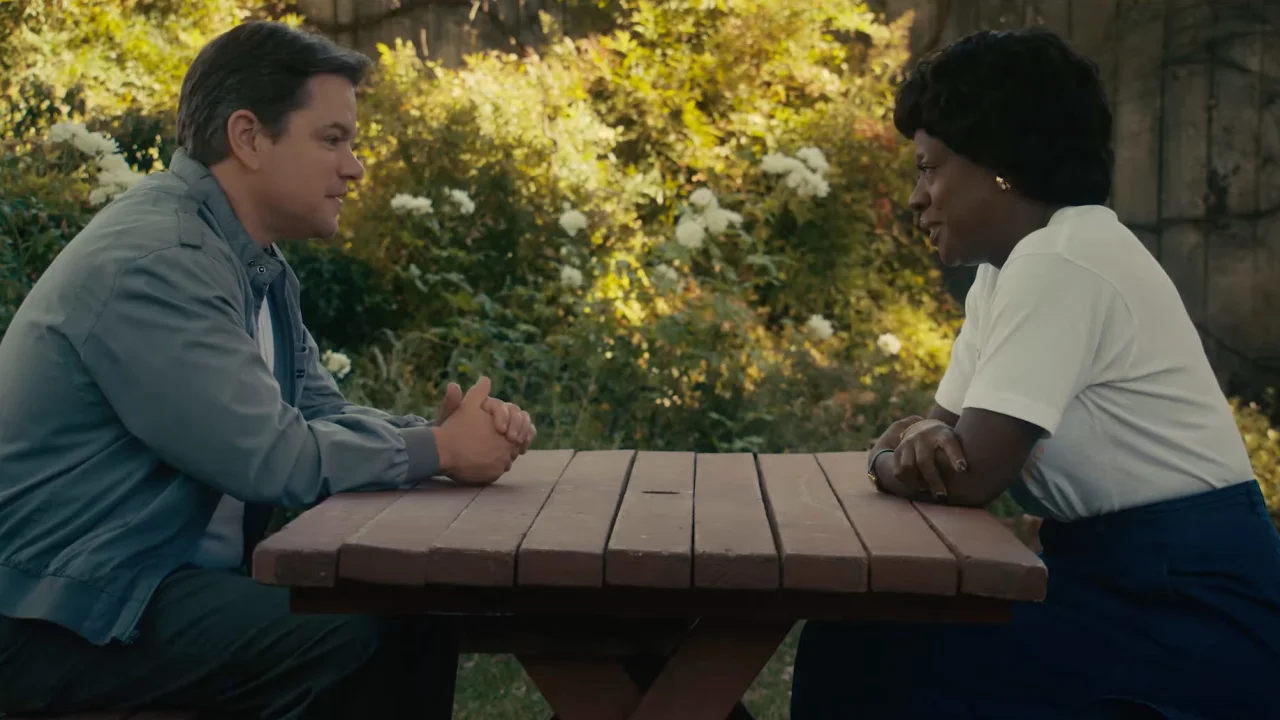
Along with Affleck and Damon, the tight-knit relationship between the key Nike employees responsible for the deal is the heart of the movie. Chris Tucker and Jason Bateman are far and away the scene-stealers, with Tucker’s animated performance as Howard White (a Nike executive who saw Vaccaro’s vision right away) giving the film many of its biggest laughs. Bateman, on the other hand, plays Rob Strasser, a divorced sports marketing executive at Nike whose strained relationship with his daughter is proof that the intangible decision making behind corporate titans affects people on a personal level.
For those who are expecting it to be so, Air is certainly not a basketball movie. There are archival clips shown, but first and foremost it’s a business biopic – one with the cleverness to understand the importance of Black culture. For a film with only a few leading Black stars, Affleck brings to the forefront the script’s implicit understanding of the way that Black Americans helped elevate both Jordan and Nike to titanic superstardom. One of the smallest but most important elements of the movie are the repeated conversations that Vaccaro has with a Black gas station cashier, one who seemingly understands Jordan’s importance as an athlete before almost anyone else at the company. It feels like, in his own small way, Affleck is reminding audiences that without the influence of Black consumers, Nike might still be making the brunt of their profit on running shoes.
Moreso than anything though, Air is a movie about the real human beings that helped turn a man into a titan, and nowhere is that more on display than the film’s secret weapon: Viola Davis as Deloris Jordan. One of the smartest directorial decisions made by Affleck is the decision to never show Jordan’s face, which preserves the air of greatness-to-come that exuded from him even back then – leaving Davis to serve as our gateway into Michael’s world. She embodies the stern decisiveness of a mother who understands just how exceptional her son is, and it’s through her that the film continually reinforces its other biggest theme – that corporations should bend to the talents of the individual, and not the other way around.
Looks can be deceiving. At first glance, Air might seem like a run-of-the-mill business biopic about one of the largest megacorporations in the world. But underneath the surface, it’s a very grounded movie about what it took to construct the mythos around one of the greatest athletes of all-time. It manages to soar, even for people uninterested in basketball or executive shenanigans, because it understands how something as invisible as belief can change the course of history, and turn a man with talent into a symbol of human greatness. -Chrishaun Baker
Thanks for reading! Consider subscribing?
‘The Super Mario Bros. Movie’ Wasn’t a Travesty (And That’s an Accomplishment)
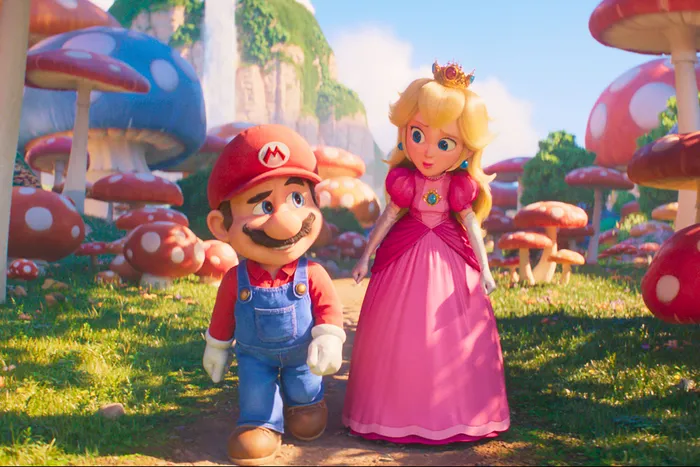
The Super Mario Bros. Movie. Even its name implies that it’s some kind of corporate product. “It’s not its own work of art — just the movie version of this thing you love!”
The Super Mario Bros. Movie represents the latest effort to bring one of the most beloved videogame characters of all time to the big screen. The first effort, 1993’s Super Mario Bros. was so disastrous that it’s not even available on any streaming platform to watch or purchase (I believe you can only get it on DVD?). I still remember going to see that movie in theaters and the wave of conflicting emotions I felt as a child watching my favorite videogame characters come to life in increasingly bizarre and off-putting ways.
The new version fares much better. The Super Mario Bros. Movie looks great, has a phenomenal cast, and is packed so full of Easter eggs and references to the games that even the most cynical part of me felt my heart flutter when I heard some of that familiar game music kick-in. It’s “faithful” to the game (much more so than the 1993 film) in the sense that all the characters basically look and behave in a way that is familiar to anyone who has even a passing knowledge of Mario, Luigi, and Princess Peach. If you’re looking to recapture some of the magic from the game, or you have a child who’s really into Mario, then you’re going to have a great time at The Super Mario Bros. Movie.
It is, in a word, safe.
What it is not is interesting in any way. The plot is threadbare, the world-building is about as deep as in the original NES videogame (i.e. not very), and the movie’s moral is so simple that it borders on parody. The thing is, even a movie about the Mario Bros. didn’t have to be this down the middle. They could’ve given Mario a personality, a character arc, a personal journey. But with this many cooks in the kitchen (Nintendo and Shigeru Miyamoto are producers of the film, along with Illumination), they opted to go down the least objectionable path possible — a path that was safe for literally everyone on earth, but is so devoid of personality that the film is unlikely to leave any residual presence in your mind after you see it.
It’s totally fine. It delivers on what it promises. Families will love it. Film critics will Meh it. But after the stench of that last movie from 30 years ago, that’s actually a welcome achievement. In other news: The Super Mario Bros. Movie is on track to have the second biggest five-day opening at the US box office of all time. Maybe he’s the Mario we deserve, but not the one it needs right now.
Other Stuff David Chen Has Made
- Over on Decoding TV, I’ve launched a new weekly podcast covering what’s latest and greatest in streaming. In our first episode, Siddhant Adlakha and I covered the first two eps of Beef on Netflix. This show is incredible! You can also watch our conversation below.
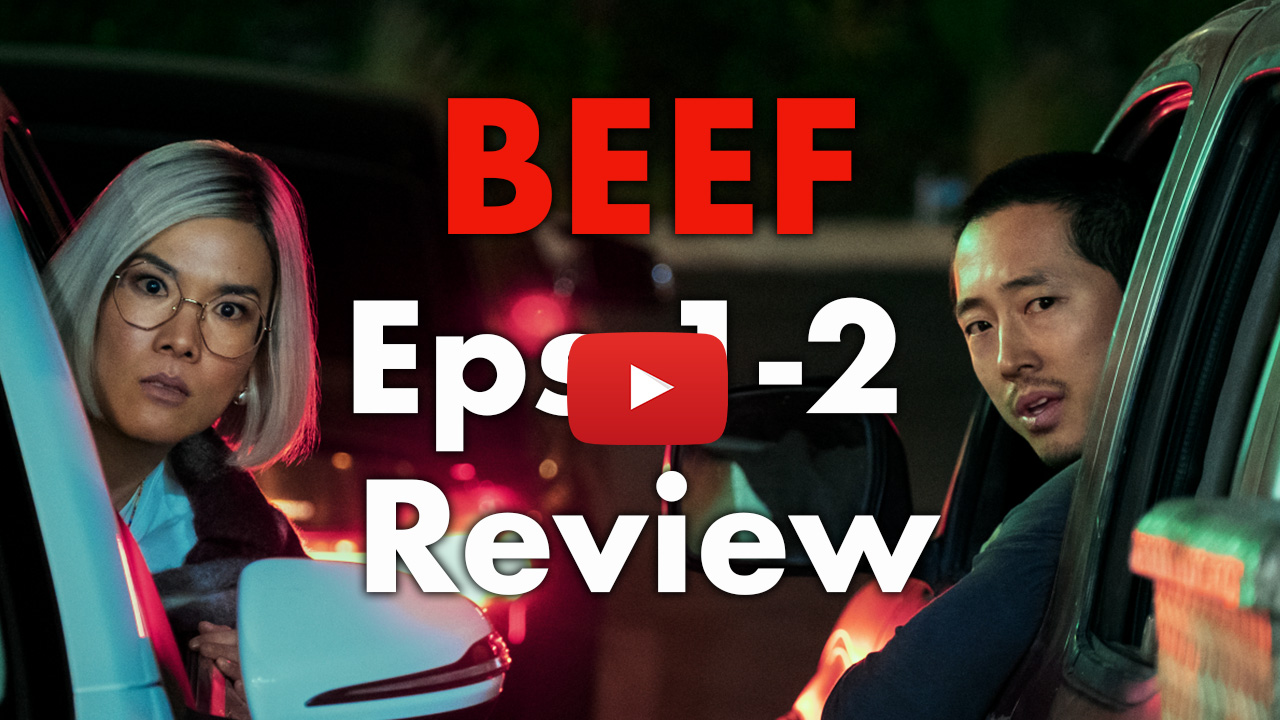
- Also on Decoding TV’s YouTube channel, we discussed the toxic familial relationships in the Roy family.
- On The Filmcast, we discussed what it’s like when one of your friends is obsessed with Letterboxd.
- On Tiktok, I shared this extremely silly story about going to see Air and Tiktok thought, “Let’s show this to a third of a million people!” Never change, Tiktok.
- [PAID ONLY] On my Patreon page, David Cho and I have an ongoing podcast series called “Dave on Dave” where we discuss what it’s like to try to run a mini podcast empire. This week, I described my experience with a setback and David Cho encouraged me to think about it in a different way. Come check out the podcast that one Patron calls “compelling, inspiring, and a lot of fun”!

